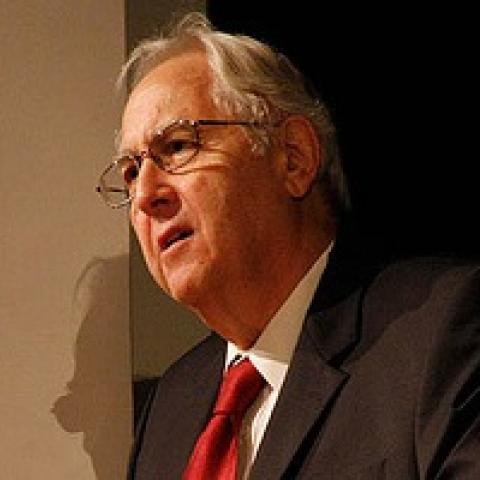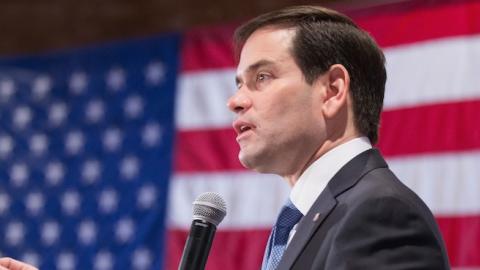When Democrats are asked which Republican candidate Hillary Clinton fears most they site Marco Rubio---not Donald Trump. As the polls show, Rubio is the candidate best positioned to defeat her. Now, Steve Berman argues in The Resurgent, (Erick Erickson’s new website) that, despite his lead, Trump cannot win the national election against Hillary. And if you think an alternative to Trump is Ted Cruz, Jennifer Rubin offers many reasons why he is not. As she writes, “he’s not an alternative to Trump, but his twin.”
The threat Rubio poses to Clinton may explain why The Washington Post has done a major hit job on him in a front page news story. Under the title "Marco Rubio's Cold War,” political reporter Mary Jordan paints Rubio as a relic of the past. The proof, she says, is his opposition to Barack Obama’s opening to Cuba when a majority of Americans are supporting it, and even young Cuban-Americans in Florida, dissenting from the views of their parents and grandparents, are anxious to travel there and resume ties with the island.
How then to explain the Senator’s supposedly regressive policy towards Cuba which, Jordan believes, will only undermine the image he wants to project as the youthful leader of a new generation? According to her, it can be found in the influence of his Cuban grandfather. “The young Rubio,” she writes, “sat at the feet of this Ronald Reagan-loving, cigar-smoking shoemaker named Pedro Victor Garcia, and listened to him describe how communism destroyed lives in Cuba and how the United States had a unique role to play in the world as the enforcer of freedom.”
It irks her that Rubio questions why Obama should change US policy now, “when there has been no improvement in Cuba’s human rights record?” To Jordan, obviously, that Rubio could even ask such a question only shows her just how backward he is. She gives no indication that perhaps, just perhaps, the Senator has posed a legitimate question.
Let us acknowledge that the polls Mary Jordan cites are correct---that Americans support Obama’s Cuban policy. Why is that surprising? They know little about Cuba, the nature of Castro’s repression, and how the decision to make Cuba Communist turned a once prosperous country into a poor one with a per capita income lower than all its neighbors? Cuba is currently being presented to them as a once forbidden land with old 50s cars, beautiful hotels and beaches with plenty of atmosphere to soak up and great Cuban music to listen to. They’re not told that their money will be going to the government with very little flowing to the Cuban people.
To be fair, Jordan gives Rubio a little space to present his arguments, writing
He is not against change, he stressed, bristling at criticism that he is the young guy stuck in the past. It’s that Obama cut a bad deal. Cuba remains a dictatorship and all the United States got, Rubio said, is the “hope that a flood of American tourists will one day lead to a democratic opening, which I know it will not because it never has anywhere in the world — and it will not now.”
But even here, she questions his motives intimating that perhaps he is taking this position to appear tough and to neutralize his past position in favor of immigration reform. The implication is that Rubio is only doing this for political reasons, even though his friends do tell her he believes what he says. The writer always can get the last word.
Rather than being the reactionary Cold Warrior Jordan claims he is, by questioning Obama’s Cuba policy, Rubio is showing he can lead, and that by his leadership, the U.S. can once again become a force for freedom in the region.
Jordan’s biased article is surprising considering that the Post's editorials on Obama’s Cuba policy have been first rate. Its columnists like Chuck Lane have consistently argued that Obama’s heralded opening to Cuba has not led to reform, and the paper has run editorials defending Cuba’s dissidents, pointing out how the regime has increased its offensive against the advocates of democracy. The Post has given Mary Jordan the job of covering the 2016 election. Writing such a biased piece calls her objectivity into question. She might greatly benefit by reading her own paper’s editorial page.




















